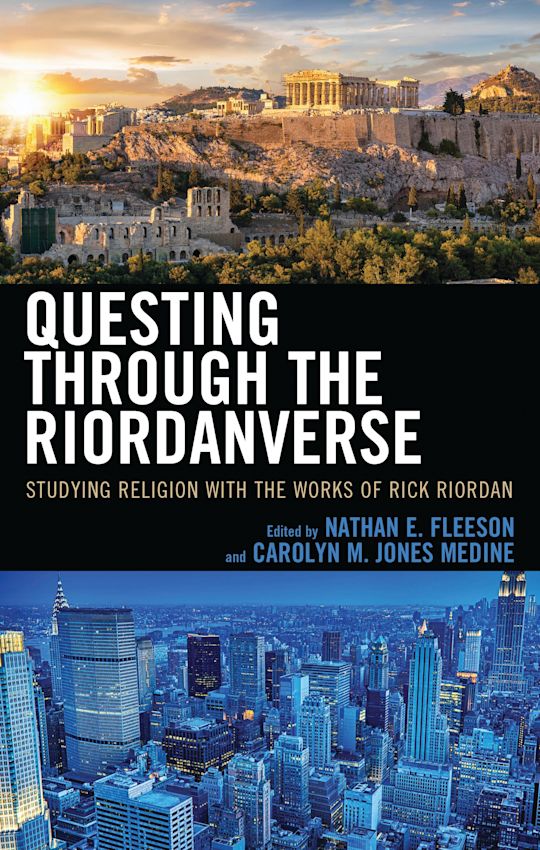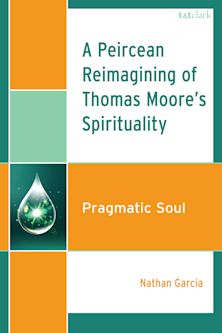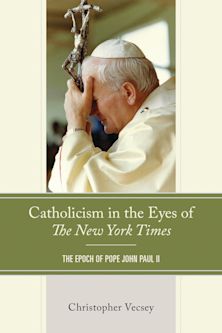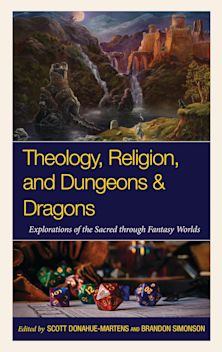- Home
- ACADEMIC
- Theology
- Theology - Other
- Questing through the Riordanverse
Questing through the Riordanverse
Studying Religion with the Works of Rick Riordan
Nathan E. Fleeson (Anthology Editor) , Carolyn M. Jones Medine (Anthology Editor) , Meredith Camp Bennett (Contributor) , Claire D'Agostino (Contributor) , Jake Doberenz (Contributor) , Nathan E. Fleeson (Contributor) , Michael Head (Contributor) , Julie Heinisch (Contributor) , Cassandra Krome (Contributor) , Molly Maupin (Contributor) , Carolyn M. Jones Medine (Contributor) , Raegan Reinking (Contributor) , Sissel Undheim (Contributor) , Judith C. Vogt (Contributor) , Grace Wills (Contributor)
Questing through the Riordanverse
Studying Religion with the Works of Rick Riordan
Nathan E. Fleeson (Anthology Editor) , Carolyn M. Jones Medine (Anthology Editor) , Meredith Camp Bennett (Contributor) , Claire D'Agostino (Contributor) , Jake Doberenz (Contributor) , Nathan E. Fleeson (Contributor) , Michael Head (Contributor) , Julie Heinisch (Contributor) , Cassandra Krome (Contributor) , Molly Maupin (Contributor) , Carolyn M. Jones Medine (Contributor) , Raegan Reinking (Contributor) , Sissel Undheim (Contributor) , Judith C. Vogt (Contributor) , Grace Wills (Contributor)
You must sign in to add this item to your wishlist. Please sign in or create an account
Description
Questing through the Riordanverse: Studying Religion with the Works of Rick Riordan examines the works of Rick Riordan and explores how these works relate to Religion and Theology. Despite the success and popularity of the works, scholars have not given the Riordanverse as much attention as other Young Adult and Middle Grade fantasy books published during the first part of the Twenty-First Century. This volume begins to address that vacuum, drawing from a number of fields, including Psychology, Media Studies, Queer Theory, and African American Studies, to offer an interdisciplinary interpretation of Riordan’s works and their impact on Religion and Theology. Contributors represent a diverse background, including perspectives from young scholars and students who grew up with the series to senior scholars considering where the series fits in the tradition of fantasy, religion, and literature.
Table of Contents
Introduction by Nathan E. Fleeson and Carolyn M. Jones Medine
Part I: A Philosophical, Theological Ethics Approach to Arts, Literature, and Religion
Chapter 1: Good, Bad, and Ugly Monsters: Characterizing Monsters in Percy Jackson and the Olympians by Jake Doberenz
Chapter 2: Percy Jackson: The Representations of Female Roles of Greek Mythical Women in Modern Literature and Film by Julie Heinish
Chapter 3: The Role of Mythology in Prosocial Behavior in the Percy Jackson and the Olympians Series by Rick Riordan by Cassandra Krome
Chapter 4: Gender-Queerness and the Concept of Argr in Norse Mythology and Magnus Chase by Judith C. Vogt
Part II: An Interdisciplinary Approach to Arts, Literature, and Religion
Chapter 5: “Remember What It’s Like to Be Human”: Finding Humanity in Fantasy Grief by Nathan E. Fleeson
Chapter 6: Rick Riordan’s Percy Jackson Novels: Fantasy and the Problem of Heroic Excellence in/and the West by Carolyn M. Jones Medine
Chapter 7: The Demigods Amongst Us: Rick Riordan’s Heroes of Olympus and Contemporary Religious Change by Sissel Undheim
Conclusion: The Future of the Riordanverse by Nathan E. Fleeson and Carolyn M. Jones Medine
Appendix I: Reflections on Percy Jackson and Religion as Pedagogy by Nathan E. Fleeson, Grace Wills, Michael Head, Molly Maupin, Raegan Reinking, Claire D’Agostino, and Meredith Camp Bennett
About the Contributors
Product details
| Published | Jun 15 2024 |
|---|---|
| Format | Ebook (Epub & Mobi) |
| Edition | 1st |
| Extent | 196 |
| ISBN | 9781978713871 |
| Imprint | Fortress Academic |
| Series | Theology, Religion, and Pop Culture |
| Publisher | Bloomsbury Publishing |
About the contributors
Reviews
-
A valuable collection of essays, not only because of its analysis of Religion and the Riordanverse, but also for its insights into classroom pedagogy and the ways in which fans interact with texts. Fleeson and Medine set a scholarly but engaging and inclusive tone in their introduction, conclusion, and individual chapters, and this tone is maintained throughout by the other chapter authors. It is particularly refreshing to see Tumblr posts discussed alongside Aristotle and Judith Butler, and student reflections included in an appendix: sources often overlooked in academic work but important to consider and include. The result of this approach is an excellent book that is both academic and accessible; focused and inclusive.
Gabriel Schenk, Signum University


































